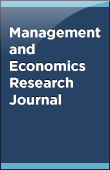


Special Issue S5: “BRICS: The Emerging Block”
The connections among provincial and worldwide organizations and local foundations are significant and questionable in worldwide administration. During the nineties, through the development of the European mix, making of the North American Free Trade Area, and different territorial participation activities in the Asia-Pacific district, researchers and policymakers thought about whether these local alliances would piece the worldwide administration structure. The World Bank Group, a single worldwide establishment comprises a few loaning arms and numerous provincial foundations. Indeed, there are more than 250 multilateral advancement offices, including in excess of twenty Multilateral Development Banks (MDBs). But, because of the notability of the issue of the relationship among various MDBs, this goes in front of the making of two new MDBs i.e., the New Development Bank (NDB) and the Asian Infrastructure Investment Bank (AIIB). The NDB is a joint endeavor among the BRICS nations (Brazil, Russia, India, China, and South Africa), which tries to support infrastructure and sustainable development in creating nations. Keeping in view, the present study assesses various prospective benefactions and imperils and proposes manners by which the MDBs can append their collaboration in development financing. The article explores how BRICS adds to worldwide economic governance which centers on advancement, speculation, trade, investment strategies, welfare, and security. The researcher also highlights India’s role in BRICS for improvising the global economic governance. The paper will stress a fastidious writing survey from a complete point of view in order to express the objectives of the research. This is subjective investigation research and the examination depends on the Secondary Data assembled from different sources. The commitment of this investigation will help various specialists with an understanding of the involvement of BRICS and New Multilateral Development Bank in changing the world economy and to worldwide turn of events.
Read Article